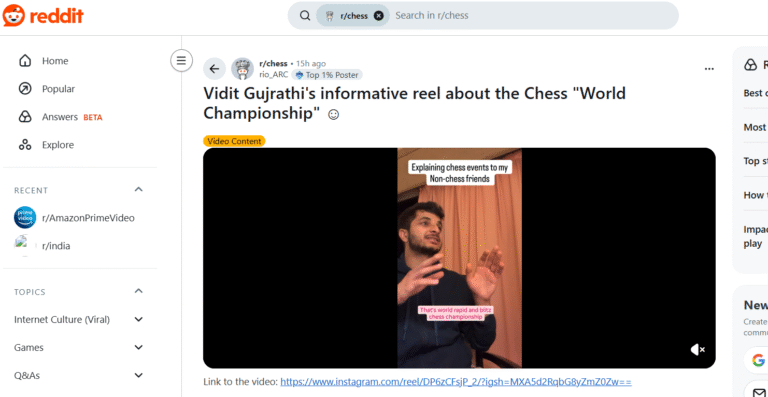
Modi hai toh mumkin hai
In a happy ending, India largest music label, T-Series has now officially removed its notorious political song, Modi Hai Toh Mumkin Hai, on YouTube after the song received a tremendous online backlash and had reached one million dislikes in only 48 hours of publication. The transition has become the focus of heated debates concerning the interplay between politics, art and the opinion of people in the digital era.
The Song That Started It All
Having been launched earlier this week, the movie, Modi Hai Toh Mumkin Hai was supposed to be a magnum opus of sorts, honoring the leadership and accomplishments of Prime Minister Narendra Modi. The music video included the scenes of the infrastructure projects, cultural festivals, and the citizens cheering the Prime Minister vision of a New India.
The song is a T-Series production, heavily marketed in the social media, and was meant to appeal to the ruling party campaign slogan. Nevertheless, the intended social media hype soon turned into a massacre of likes and dislikes, people started swamping the video with sarcastic remarks and memes ridiculing the production and the message it conveyed.
The Digital Rebellion and Backlash.
What ensued was unparalleled. The counter of dislikes started increasing very fast after the release, and many netizens started calling it propaganda disguised as art. The hashtags such as the one named #ModiSongDisaster and the one named BoycottTSeries started trending on X (previously, Twitter) with the users claiming that the music label was pushing political agendas rather than concentrating on entertainment.
The criticism was not restricted to the opponents of the opposition, with many neutral audience and even some long term T-Series fans complaining that the song was tone-deaf and ill-timed, particularly given the unemployment, inflation, and rural distress worries.
There was a saturation of memes on the social media with one individual posting, “Modi hai toh mumkin hai… par one million dislikes bhi mumkin hai!” One of them said, T-Series needs to be content with remixes, not manifestos.
Official Move and Silent Exit at T-Series.
Under constant attack, T-series went ahead and took down the video late on a Thursday night without any official statement. At that point, the screenshots of the number of likes and bits of the song already were viral and ensured that the controversy would persist even after the deletion.
Those who had a closer relationship with the company implied that issuing the order to remove the video was arrived at after senior executives examined the negative feedback and found that the criticism was tarnishing the brand. One of the sources claimed that T-Series is a non-partisan entertainment media. We did not recognize the political sensitivity involved in this project.
Political Undertones and Social sentiments.
The episode has sparked the same debate regarding the extent to which entertainment platforms should be involved in political promotion. Opponents claim that the border between cultural expression and political propaganda has become blurred particularly when big corporations decide to identify their creative output/output with political leaders.
Surprisingly, this is not the first occasion whereby a song in political theme backfired in India. Such campaign-related videos were previously trolled and disliked, however on a level never experienced before this week. The massive dismissal of Modi Hai Toh Mumkin Hai seems to demonstrate frustration among younger audiences as it is more likely to express dissentment using digital platforms.
The Bigger Picture to the Likes.
Digital culture critics note that people disliking the song were not only expressing their dislike of its quality, but also of what it was, which was perceived to be an attempt to apply entertainment as a form of image management. At a time when people appreciate authenticity and spontaneity in their activities, the praise that was orchestrated in the video was unnatural and politically inclined.
According to one researcher of social media, the young Indians are more vocal and digitally empowered than ever before. Being hated by a million people does not mean that it is just a response to a song, it is a statement of dislike to the politicization of art.
This Implications of this to T-Series and Political Messaging.
The cancellation of the Mody Hai Toh Mumkin Hai is a unique example of social pressure pushing a giant corporation into taking content down. It underlines the fact that the feedback of the audience in the digital era is empowered and can influence corporate and creative choices.
In the case of T-Series, now the difficulty will be to regain trust in its audience and shift back to its music roots instead of its politics. Industry analysts also think that the label will not engage in any politically charged projects in the near future, and instead focus on its future film soundtracks and its partnerships with independent artists.
The Legacy and the Internet.
Although it was deleted, the song continued to exist in its legacy in the form of reuploads, parody videos and reaction clips on YouTube and Instagram. As a matter of fact, the banning has only increased the curiosity as most users who were not present during the initial release seek to find copies to know what the controversy was all about.
So far, both T-Series and the office of the Prime Minister have not made any official comments. Nevertheless, the incident is an effective reminder that in this digitalized democracy, the audience ultimately determines what will remain and what will disappear regardless of the size of the production house or the personality driving it.








